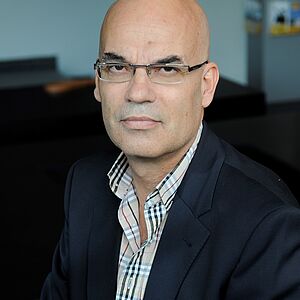
Albert Doja
- FACULTE DES SCIENCES ECONOMIQUES SOCIALES ET DES TERRITOIRES
- DEPARTEMENT DES SCIENCES SOCIALES
Home
Albert Doja is currently an University Professor at the University of Lille, France, and an Ordinary Member of the National Academy of Sciences, Albania, holding the first Chair of anthropology. He was awarded with distinction a Ph.D. in Social Anthropology in 1993 from the Paris School of Advanced Studies in Social Sciences (EHESS) and a Professorial accreditation (Habilitation à Diriger des Recherches) in sociology and anthropology in 2004 from Paris Descartes University, Sorbonne, qualifying for full University Professorship within the French academic system. He has been a former Visiting Research Scholar at Harvard University, a Honorary Fellow of the Department of Anthropology at University College London and on temporary assignment posted to the United Nations Development Program (UNDP) as the founding Vice-Chancellor of the new University of Durres in Albania. He has held several academic positions in France, USA, Britain, Ireland and Albania, lectured in social anthropology and conducted extensive fieldwork research in many other countries. He is on the editorial board of international academic journals and he has so far published a couple of books and many original articles in international peer-reviewed and indexed journals (http://orcid.org/0000-0001-5378-8362; http://www.researcherid.com/rid/C-1637-2008).
Special interests include politics of knowledge, power and ideology; political anthropology of symbolism and religion; intercultural communication, interethnic relations and international migrations; cultural heritage and social transformations; social moralities and intellectual productions in the context of global religious pluralism and diversity; international politics of hegemonic representations; comparative politics of identity transformations; instrumental politics of civic ideas and ethnic motivations; comparative politics of European identity and European integration; identity structures, discourses, practices, and processes; political technologies of the self, personhood, gender construction, kinship organization, and reproduction activism; anthropology of politics and history; political-anthropological theory, structural analysis, post-structuralism and neo-structuralism.



